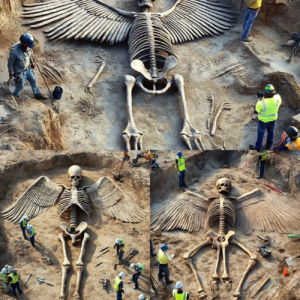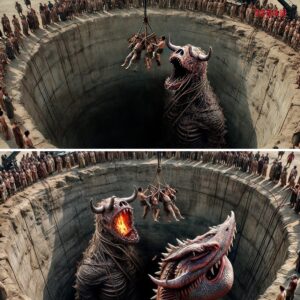The Epic of Gilgamesh, predating Homer’s Iliad and Odyssey by 1500 years, is recognized as the oldest piece of world literature. This Babylonian poem tells the story of Gilgamesh, the fifth king of the Sumerian city of Uruk, who ruled around 2700 BCE. His legendary deeds and supposed divine nature eventually shaped The Epic of Gilgamesh.
Known by various names across cultures—Bilgames in Sumerian, Gilgames in Akkadian, and Gilgamos in Greek—the meaning of his name is interpreted by scholars as “The Old Man is a Young Man” or possibly “The Kinsman is a Hero.”
The son of the priest-king Lugalbanda and the goddess Ninsun, Gilgamesh was a demigod with super-human strength and an exceptionally long life, as documented in the Sumerian King List, with a reign of 126 years. Moreover, prayers inscribed on clay tablets reveal that people addressed Gilgamesh in the afterlife as a judge of the Underworld, equating his wisdom with that of the renowned Greek judges Rhadamanthus, Minos, and Aeacus.
An ancient Assyrian statue, believed to possibly represent Gilgamesh, 713–706 BCE
In the mid-19th century, scholars discovered the most complete version of The Epic of Gilgamesh, written in Akkadian on clay tablets using cuneiform script, in the ruins of King Ashurbanipal’s ancient library in Nineveh. During this period, European museums, antiquarian societies, and governments dispatched archaeologists to Mesopotamia, hoping to find evidence supporting biblical narratives.
Contrary to their objectives, these explorers uncovered evidence that challenged their expectations. The ruins of Mesopotamia’s ancient cities revealed cuneiform texts which, once deciphered, indicated that well-known biblical stories such as the Fall of Man, the Great Flood, and Noah’s Ark, were likely influenced by earlier Sumerian myths. These discoveries in Mesopotamia dramatically shifted historical perspectives, underscoring that the Bible was not the world’s oldest book.
A damaged fragment of Tablet V from the Epic of Gilgamesh, dating back to the Old Babylonian period (2003-1595 BCE)
The Epic of Gilgamesh was initially transmitted orally, centuries before it was penned down between 700 and 1000 years after Gilgamesh’s rule, between 1300 and 1000 BCE. The story opens with Gilgamesh, the formidable king of Uruk, portrayed as an arrogant and oppressive ruler. The gods, responding to the grievances of Uruk’s citizens, create Enkidu, a creature of the wild, who transforms into a wise, human-like being after an encounter with a temple prostitute, marking his entry into civilization.
A terracotta wall panel depicting Enkidu, a friend of Gilgamesh, from Ur, Iraq, dating to 2027–1763 BCE
Gilgamesh and Enkidu, after an initial clash, forge a strong friendship and set out to make their mark on history by defeating Humbaba, the giant guardian of the Cedar Forest, as appointed by the gods. Victorious, they return to Uruk with cedar wood, symbolizing their triumph.
Upon their return, Ishtar, the goddess of war and love, enticed by Gilgamesh’s beauty, attempts to seduce him. He refuses her advances, pointing out the fates of her previous lovers. Outraged, Ishtar sends the Bull of Heaven to destroy Uruk. Gilgamesh and Enkidu slay the bull, and Enkidu further defies Ishtar by throwing part of the bull at her. This act against the gods leads to a divine decree: Enkidu must die.
The death of Enkidu plunges Gilgamesh into profound sorrow. This loss awakens him to his own mortality driving him to question life’s meaning and the value of earthly achievements in the face of inevitable death.
Overwhelmed with grief, he says:
How can I rest, how can I be at peace? Despair is in my heart. What my brother is now, that shall I be when I am dead. Because I am afraid of death I will go as best I can to find Utnapishtim whom they call the Faraway, for he has entered the assembly of the gods.
Leaving behind his pride and vanity, Gilgamesh embarks on a quest to discover life’s meaning and a way to overcome death. He ventures far in search of Utnapishtim, the legendary hero who outlived the Great Flood and received immortality as a gift from the gods.
During his travels, Gilgamesh encounters Siduri, a tavern keeper, who advises him to abandon his futile search and embrace life’s simple joys. Gilgamesh, however, finds this perspective unsatisfactory, convinced that life holds no meaning if it inevitably leads to losing everything one loves.
Continuing his quest through the Land of Night and across the Waters of Death, Gilgamesh reaches Utnapishtim. He shares his story with Gilgamesh, recounting how he was forewarned by the gods about the forthcoming flood. He obeyed their instructions to construct an ark and gather various animals, thereby preserving himself, his family, and various species from annihilation. After surviving the storm, he and his wife were given eternal life and made their home on a distant island, away from civilization.
Utnapishtim sets a challenge for Gilgamesh, offering eternal life if he can remain awake for six days, a test Gilgamesh fails. He then seeks a magical plant that rejuvenates youth, only to lose it to a snake while bathing, symbolizing the snake’s ability to renew itself by shedding its skin. Having failed in his quest, Gilgamesh returns to Uruk, where he decides to inscribe his story on the city walls.
An ancient Mesopotamian terracotta relief, depicting Gilgamesh slaying the Bull of Heaven, c. 2250–1900 BCE
In his pursuit of life’s meaning and defiance of death, Gilgamesh emerged as literature’s first epic hero. His journey, marked by grief and existential inquiry after his friend’s death, resonates with anyone who has grappled with loss and sought purpose in the shadow of mortality. Gilgamesh’s dread of death is essentially a fear of a life without a meaning. Although his search for immortality does not succeed, the quest itself fills his existence with meaning. His legacy endures through the tale itself, granting him a form of eternal life.
The poem The Death of Gilgamesh narrates that he was laid to rest at the bottom of the Euphrates, with the river’s waters parting upon his passing. In April 2003, a German archaeological team claimed to have found his tomb. Employing modern technology, including magnetic surveys within the former channels of the Euphrates, they uncovered garden enclosures, buildings, and structures that align with descriptions in The Epic of Gilgamesh, pointing to the possible location of Gilgamesh’s final resting place.




